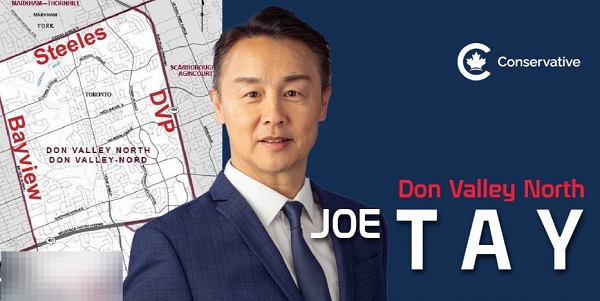Survivor’s harrowing tale connects billionaire David Rockefeller and former Canadian PM Pierre Trudeau to global paedophile network.
In a chilling and unprecedented viral interview with Patrick Bet-David of the PBD Podcast, Anneke Lucas, a survivor of childhood trafficking, revealed harrowing details of her experiences within what she describes as a global network of elite paedophiles.
Lucas, who claims to have been trafficked by her mother into a Belgian paedophile ring at the age of six, shared stories that connect high-profile figures to her abuse, including former Belgian Prime Minister Paul Vanden Boeynants and the late billionaire and “Father of Big Pharma” David Rockefeller.
Lucas began her story with her childhood in Belgium, where she was allegedly sold by her mother to high-profile figures for sexual exploitation. She recounts being taken to various events, including one at a castle where she encountered severe abuse. Paul Vanden Boeynants, who later became Belgium’s Prime Minister, was implicated as a key figure in this network, using children for blackmail and to initiate new members into the fold.
The interview took a darker turn when Lucas spoke about her interactions with David Rockefeller, whom she met at the age of nine. Rockefeller, according to Lucas, saw her potential as part of an elite sex slave system aimed at controlling influential men through seduction and blackmail. She described being trained in mind control techniques by a German doctor, Hans Harmsen, linked to eugenics practices during Nazi Germany, to serve as a spy within this network.
Lucas’s revelations extend beyond political figures to include entertainers she met at gatherings organised by this secretive group. Although she refrained from naming living individuals due to legal and personal safety concerns, she hinted at the involvement of celebrities, suggesting a widespread operation that spans continents and includes both political and entertainment Hollywood elites.
The interview has sparked a significant public reaction, with many calling for further investigations into these allegations. While some of the accused are deceased, the implications for the survivors and the potential for ongoing activities by similar networks remain a grave concern. Lucas’s story adds to the growing discourse around child trafficking and the dark underbelly of elite societies, echoing recent high-profile cases like that of Jeffrey Epstein.
Bet-David addressed the urgency of addressing child trafficking, citing FBI statistics on missing children in the U.S, who number in the hundreds of thousands. He urged for more attention, resources, and legal frameworks to combat these issues. Lucas, on her part, has dedicated years to healing and now works with other survivors, aiming to shed light on these dark practices and promote healing and justice.
Her book, Quest for Love offers a detailed account of her experiences and healing journey. Bet-David encouraged viewers to support Lucas by purchasing her book, linking to it in his video description, hoping to bring more awareness and perhaps inspire change or further legal scrutiny into these networks.
Paul Vanden Boeynants
Anneke Lucas identified Paul Vanden Boeynants, the former Belgian Minister of National Defense and a two-time Prime Minister, as the head of the pedophile network in Belgium where she was initially trafficked. Lucas was introduced to Vanden Boeynants through her mother, who drove her to various “events” where she was abused. Vanden Boeynants allegedly used her and other children for blackmail purposes, leveraging their vulnerability to control or influence new members of the network. His position of power in Belgium’s political landscape provided him with the influence to orchestrate these gatherings, often held in secluded locations like castles, where Lucas experienced some of her most traumatic abuses.
Lucas described Vanden Boeynants as treating her with disdain, often as if she were nothing more than an object for exploitation. This treatment was part of a broader pattern where she was made to feel worthless, a tactic used to break the spirit of the children involved, ensuring their compliance and silence.
David Rockefeller
Lucas’s interactions with David Rockefeller were particularly detailed in her recounting. At the age of nine, she was brought to the U.S. where she was trained in various estates owned by Rockefeller, with the intention of turning her into what she described as an “elite sex slave.” This training involved not only sexual grooming but also lessons in elite etiquette, aiming to make her comfortable in high society environments to better facilitate her role as a spy and seductress among influential men.
Rockefeller, according to Lucas, saw her as a project, someone he could mold into a tool of influence. She spoke of an instance where she was taken to meet a member of the Rothschild family on an island off the U.S. northeast coast, suggesting a wider network involvement. Her training included mind control techniques in Germany, where she was subjected to harsh psychological manipulation to ensure her loyalty and effectiveness in her future roles.
Hans Harmsen
Hans Harmsen was mentioned in relation to the mind control training Lucas underwent in Heidelberg, Germany. Described as a doctor with a background in eugenics from Nazi Germany, Harmsen’s role was to ensure that victims like Lucas were not just physically but mentally conditioned for compliance. Lucas recounted how Harmsen used methods like forced observation of films to predict and control behaviours, employing extreme measures like strangulation to enforce learning through fear and near-death experiences. This training was part of a larger strategy to create programmable assets for the network’s use.
The Broader Network
While Lucas was cautious about naming living individuals, she alluded to encounters with other notable figures during events organised by this network. One such event was described near Lake Como in Italy, where she was exposed to a mix of politicians, celebrities, and aristocrats. Here, she was used in various ways, from performing to direct abuse.
The interactions she described with these figures often involved her being used to test or exploit their weaknesses, a method used to gather blackmail material or to ensure their continued cooperation within the network.
Pierre Trudeau
Lucas mentioned encountering Pierre Trudeau, the father of current Canadian Prime Minister Justin Trudeau, during one of the events she was trafficked to. She described this interaction as one of the most terrifying experiences of her life, stating, “I said that I could never please him as long as I was alive,” indicating the level of fear and trauma associated with that encounter. This interaction was part of her role where she was expected to report back on the weaknesses or preferences of the men she was forced to be with, information which could be used for blackmail or manipulation by the network leaders like David Rockefeller.



















